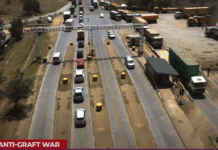Less than 20% of e-waste is formally recycled, with 80% either ending up in landfill or being informally recycled – much of it by hand exposing workers to hazardous substances.
With this, Nema Kenya is implementing the African Environmental Health and Pollution Management Project (AEHPMP). The program is a Global Environment Facility with World Bank as the Implementing Agency.
In Kenya, NEMA is the executing agency and the project’s main objective is to strengthen institutional capacity to manage and regulate e-waste and related UPOPS in Kenya.
The project is also being implemented in five African countries notably; Kenya, Tanzania, Zambia, Ghana and Senegal with World Bank as the Implementing Agency.

The project is founded on the basis that electronic and e-waste commonly referred to as e-waste is emerging as one of the most critical environmental challenge globally, regionally and nationally.
Currently, e-waste accumulation is reaching an unsustainable level and owing to management challenges, they are becoming a major source of environmental pollution. In Kenya, electronic waste is the fastest-growing waste component, with an estimated 51,300 tons of electronic waste being generated in annually.
It is in this regard that NEMA in conjunction with Africa Waste and Environment Management Centre (AWEMAC) is conducting training on e-waste management in Kenya at PrideInn, Mombasa.
The aim of the training is to build the capacity of County and national government officials to handle e-waste in the country.


















